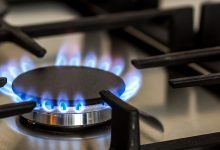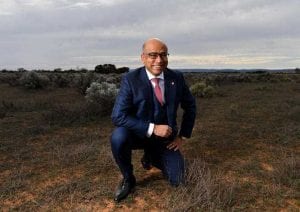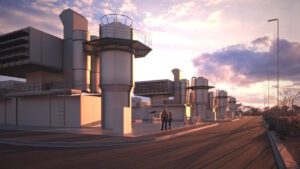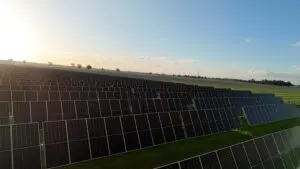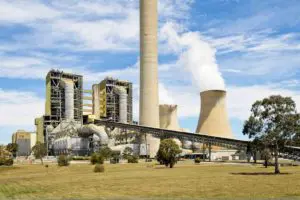Gas companies facing an exodus of residential customers to cheaper, cleaner electrification are clinging to hopes that their networks will be used in the future to pipe green hydrogen into homes in place of the fossil fuel. But a new report from the UK raises fresh doubt about the safety of this practice, this time around gas leaks in the home.
A UK lab tested the use of hydrogen blended gas in three best-selling cooktops and three boilers and found major leaks for all six options when hydrogen was added to the mix.
Leaks when using the hobs almost doubled under hot and cold conditions, and for households boilers they rose by 44 per cent, according to the study commissioned by the non-profit Environmental Coalition on Standards (ECOS).
But that was in a pristine lab setting. Existing household appliances are likely to see much higher leakage rates, the report said.
How does it compare to Australia?
The ECOS testing was of a 20 per cent hydrogen blend with methane gas and 100 per cent hydrogen gas, at a pressure of 21-25 millibars.
To put that in context, this pressure is equivalent to 2.1-2.5 kilopascal (kPa), which is at the very bottom of the range at which gas networks are run in Australia.
For example, Jemena says it runs its New South Wales (NSW) and ACT gas networks at 2kPa-1050kPa while AusNet says its network in Victoria is made up primarily of high pressure polyethylene mains which need to run at 140-515kPa.
Hydrogen is a smaller molecule than methane so it’s more prone to escaping via leaks and is a third less energy dense; to deliver the same energy volume gas providers must increase the pressure in their networks.
Following this research, the fear is that leaks are sure to rise further as distribution networks are forced to increase pressure in their networks to offset hydrogen’s lower energy density.
In places like Victoria where high pressure polyethylene mains would need a huge hike in pressure compared to the ECOS report’s tested levels, leaks are likely to be significant.
Unfortunately, this kind of data is not yet available in Australia, despite Jemena in NSW and ATCO in Western Australia already running pilots over the last two years that include 2 per cent hydrogen in some of their gas networks.
RenewEconomy has reached out to both companies for comment on the progress of their trial schemes.
“What research has been done in Australia has been done by the gas industry using public funds, but none of it has been released,” says Environment Victoria senior climate and energy advisor Dr Kat Lucas-Healey.
“The Future Fuels Cooperative Research Centre, which has a bunch of industry partners, have done testing of some new gas appliances with some hydrogen blends. They have just said the results are useful, but not [detailed] what those results are.
“They say they’ve done the testing and it’s fine, but they haven’t released the results, so there are some big questions there.”
Science builds against hydrogen in homes
The leaks data comes as increasing amounts of scientific research confirm the use of gas in homes as a major health risk.
Last year alone saw a swathe of research calling out gas appliances in homes as being a source of damaging leaks.
A Stanford University study found gas ovens or hobs can in a short time emit more carcinogenic benzene than secondhand tobacco smoke, a chemical linked to blood cancers and anaemia.
A year earlier researchers from the same university found gas hobs leak gas even when they’re turned off.
The Menzies Institute for Medical Research and the Centre for Air Pollution, Energy and Health Research (CAR) noted nitrogen dioxide (NO2), particulates (PM2.5), carbon monoxide (CO), and formaldehyde (HCHO) are nasty byproducts created from burning gas in the home.
And UNSW’s associate professor Donna Green said her work showed that we’re right to be worried about the pollution emitted by gas stoves.
“We cook frequently on our stoves. That means you are getting a regular dose of air pollutants quite close to your face, and that’s not good. And we now have alternatives that are much safer and better for the environment,” she said last year.
All of this was taking place as gas networks began offering consumers rebates and cash to keep their gas appliances or switch back from electric to gas, while US researchers found gas companies are reaching for a tobacco marketing playbook to stave off extinction.
Reacting to the report today, Cambridge University professor David Cebon said Australia should heed the latest findings, which add to the scientific consensus that gas doesn’t have a place in the home.
“Such findings are already playing out in the real world, with the UK recently cancelling plans to trial hydrogen for home heating,” he says.
“Australia has not yet locked itself into the costly, energy inefficient and risky path of blending hydrogen into its household fossil gas. An upcoming decision in Victoria to phase out the country’s largest gas network, or to choose continued fossil fuel use with hydrogen blending, is an opportunity to vote for electrification – and reap the safety, climate and economic benefits that come with it.”
From fires to greenwashing
The ECOS study includes a a wider literature review which identifies much of the research showing that hydrogen in gas networks is either a risk for health or climate reasons. There are number of areas where greenwashing is rampant, particularly in Europe where countries are already requiring a level of green hydrogen to be blended into networks.
Portugal already requires at least 1 per cent gas blending in its national network, a climate initiative that is wiped out if leaks amount to just 0.7 per cent of the gas burned, the lab data shows.
And research for the UK government suggests there will be around four times more fires or explosions in homes if hydrogen replaces methane.
The ECOS report also handily identifies where greenwashing is happening, says Lucas-Healey.
The UK is one location where regulators accused appliance manufacturers of misleading consumers over so-called “hydrogen-ready” products, said to be capable of handling hydrogen gas and blends but in fact no are different to existing products already in people’s homes.

